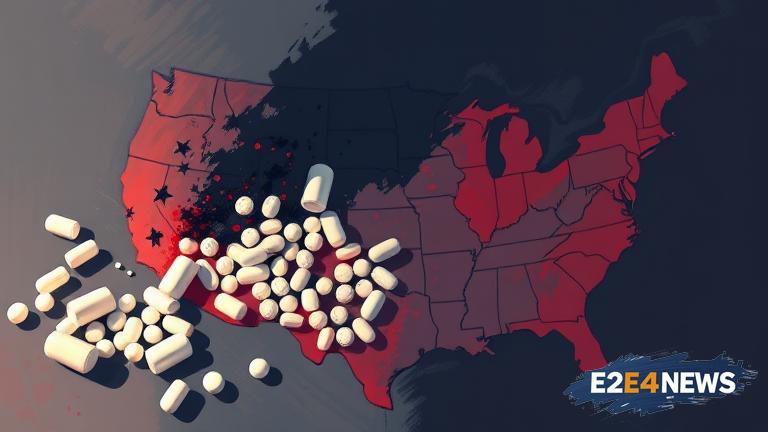The opioid crisis has been a longstanding issue in the United States, with devastating consequences for individuals, families, and communities. Despite efforts to address the problem, the crisis persists, and it is imperative that policymakers and stakeholders take bold and comprehensive action to combat this epidemic. The statistics are alarming, with tens of thousands of lives lost to opioid overdoses each year, and many more struggling with addiction. The economic burden is also significant, with estimates suggesting that the opioid crisis costs the US economy billions of dollars annually. Furthermore, the crisis has had a disproportionate impact on certain demographics, including rural communities and low-income populations. To effectively address the opioid crisis, it is essential to adopt a multifaceted approach that incorporates prevention, treatment, and recovery strategies. This includes increasing access to evidence-based treatment, such as medication-assisted therapy, and expanding support services for individuals in recovery. Additionally, addressing the root causes of addiction, including mental health issues and social determinants, is crucial to preventing opioid use disorder. Law enforcement and public health agencies must also work together to disrupt the supply of illicit opioids and hold accountable those who perpetuate the crisis. Moreover, educating the public about the risks of opioid use and the importance of seeking help is vital to reducing stigma and promoting a culture of recovery. The federal government has a critical role to play in addressing the opioid crisis, including providing funding for treatment and recovery programs, as well as supporting research into new and innovative solutions. State and local governments must also take action, including implementing policies to reduce opioid prescribing, expanding access to naloxone, and supporting community-based initiatives. The private sector, including pharmaceutical companies and healthcare providers, must also be held accountable for their role in perpetuating the crisis and take steps to prevent opioid misuse. Ultimately, addressing the opioid crisis will require a sustained and collective effort from all stakeholders, including policymakers, healthcare providers, community leaders, and individuals affected by the crisis. By working together and adopting a comprehensive and compassionate approach, it is possible to reduce the devastating impact of the opioid crisis and create a brighter future for those affected. The time for action is now, and it is imperative that we prioritize the health, well-being, and dignity of those struggling with opioid use disorder. We must also recognize the importance of addressing the social determinants of health, including poverty, lack of education, and unemployment, which are often underlying factors in opioid addiction. Moreover, we must prioritize the needs of vulnerable populations, including children, women, and minority communities, who are disproportionately affected by the crisis. The opioid crisis is a complex and multifaceted issue, and addressing it will require a long-term commitment to solving the problem. However, by working together and adopting a comprehensive approach, we can create a safer, healthier, and more compassionate society for all. The consequences of inaction are too great to ignore, and it is our collective responsibility to take action and demand meaningful change. We owe it to ourselves, our families, and our communities to prioritize the health and well-being of those affected by the opioid crisis and to work towards a future where everyone has access to the support and resources they need to thrive.
